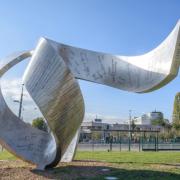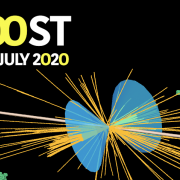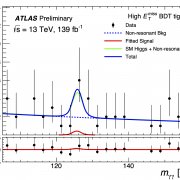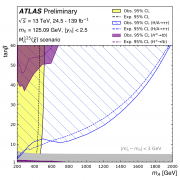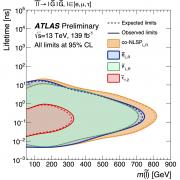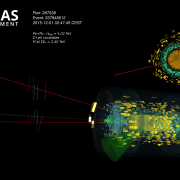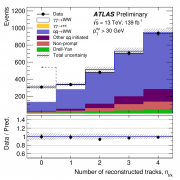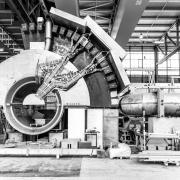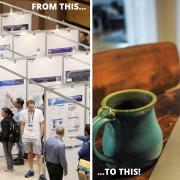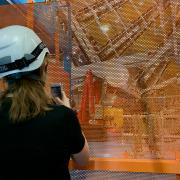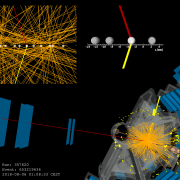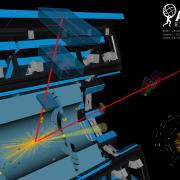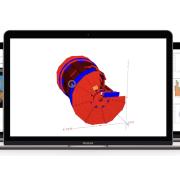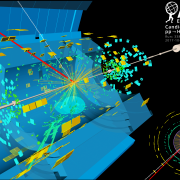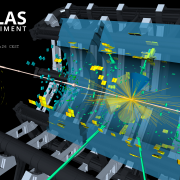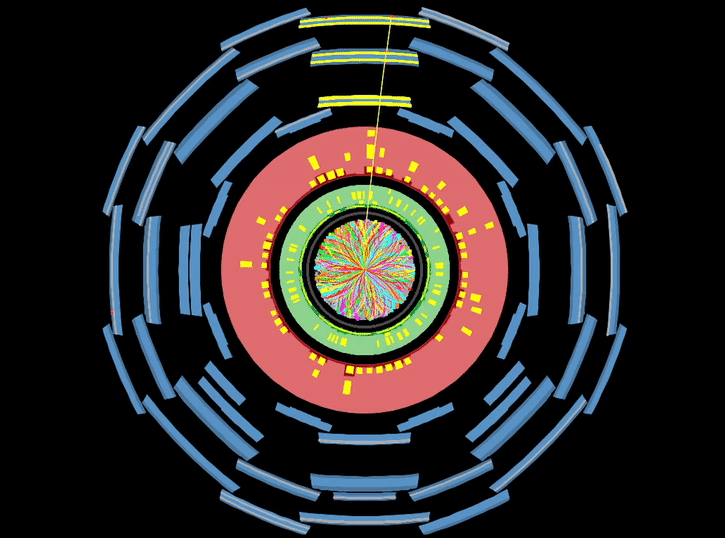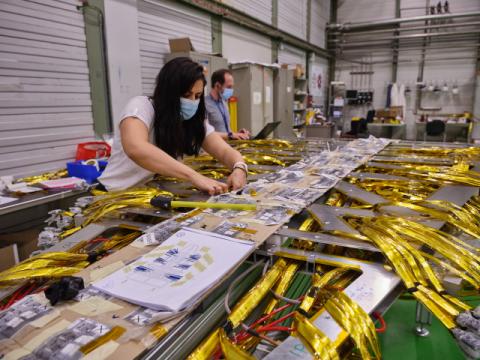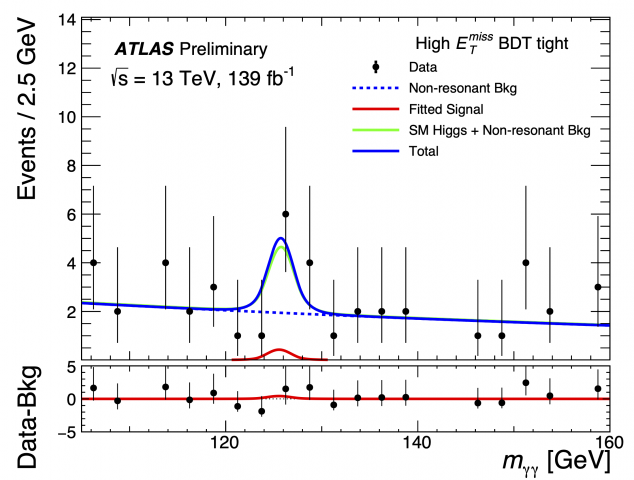Access to Collaboration Site and Physics Results
Updates tagged: “detector operation”

ATLAS records first test collisions at 13 TeV
On 20 May at around 22:24, ATLAS recorded the first 13 TeV test collisions delivered by the Large Hadron Collider. The proton collisions set a new high energy record, marking the beginning of ATLAS' journey into unexplored physics frontiers as we prepare for production data-taking, scheduled to start in early June.
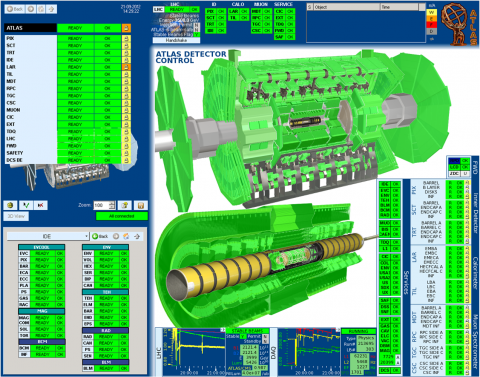
Coordination for collisions
There is the Large Hadron Collider and then there are its experiments. When the collider is ready to circulate proton beams, the experiments have to be ready to receive them.
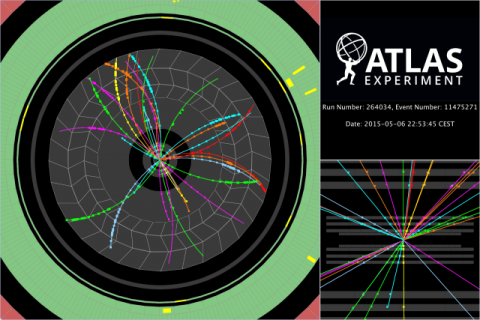
First collisions at injection energy
On the morning of 5 May 2015, ATLAS recorded the first scheduled proton beam collisions since the Large Hadron Collider and its experiments started up after two years of maintenance and repairs.
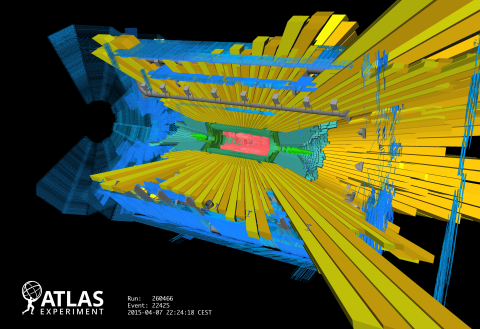
Splashes for synchronization
ATLAS uses "beam splash" events to provide simultaneous signals to large parts of the detector, and verify that the readout of different detectors elements are fully synchronized. After the first 2015 Large Hadron Collider beam circulation on Easter Sunday, a run dedicated to taking beam splash events was set up on Tuesday evening, 7 April.
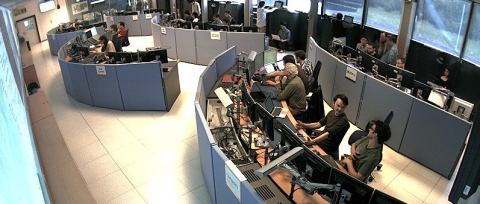
The Symphony of ATLAS
Bringing the nine-storey high, many-layered ATLAS detector back to life and preparing it for the Large Hadron Collider's next run is a complex task. Each sub-detector is setup and thoroughly tested before they are joined and the detector as a whole can begin recording data again.
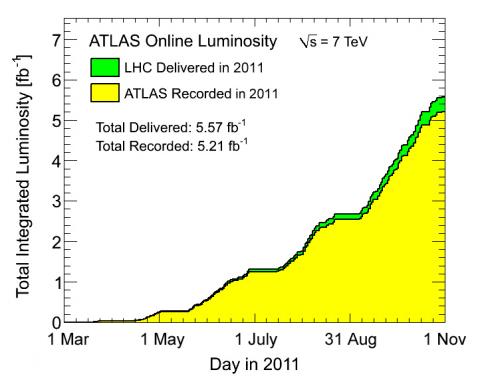
ATLAS reaches milestone: 5 inverse femtobarns of data!
In an amazing year that has exceeded our expectations, the Large Hadron Collider has delivered, and ATLAS has recorded, over 5 inverse femtobarns (fb-1) of collisions. These units correspond to having 3.4 x 1014 or 340 000 000 000 000 total collisions. Most analyses presented at the last major conference (the Lepton Photon Symposium in August in Mumbai) made use of about 1 fb-1, so this is a big jump.
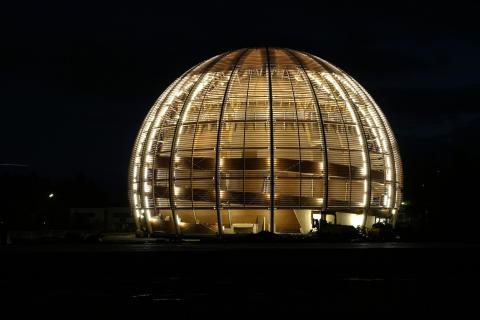
ATLAS never sleeps
Working in an international laboratory like CERN is incredibly exciting, and I’m not just talking about Higgs hunting. People in the outside world are endlessly curious about what happens on the sprawling two-kilometre-long site, and I get asked all kinds of questions, ranging from the funny to the profound.

Re-hashing reconstruction
Now that the big summer conferences are under our belts, we’re busy reprocessing the data ATLAS has taken so far in 2011. The raw data we collect at ATLAS – basically millions of electrical signal values from the different bits of the detector – has to be treated (‘reconstructed’) to turn it into meaningful physics data that can be analyzed for signs of new physics.
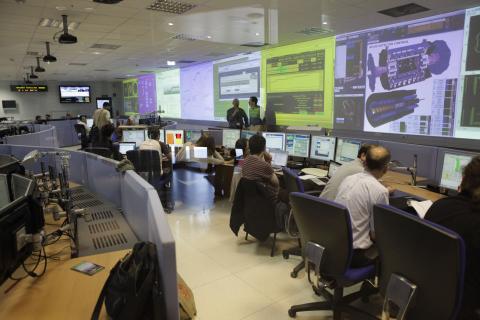
Frantic for femtobarns...
In particle physics, we describe the number of interesting particle collisions that we have in our data in terms of the "integrated luminosity", which is measured in units called inverse femtobarns. In the whole of 2010, the LHC delivered about 0.04 inverse femtobarns (about 3 million million collisions). Nowadays, it can deliver twice that in a single day!
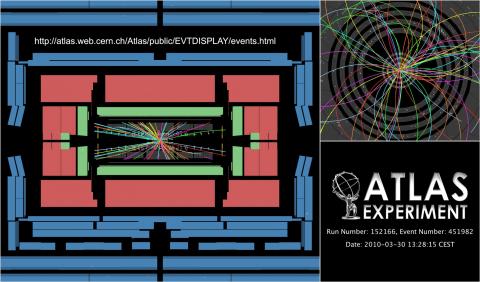
First 7 Tev collisions have been recorded in ATLAS
After ramping of the beams to 3.5 TeV and tuning, final checks, and some emotions due to an unforeseen beam dump, the 7 TeV collisions finally appeared on the on-line monitors of the ATLAS Control Room.


